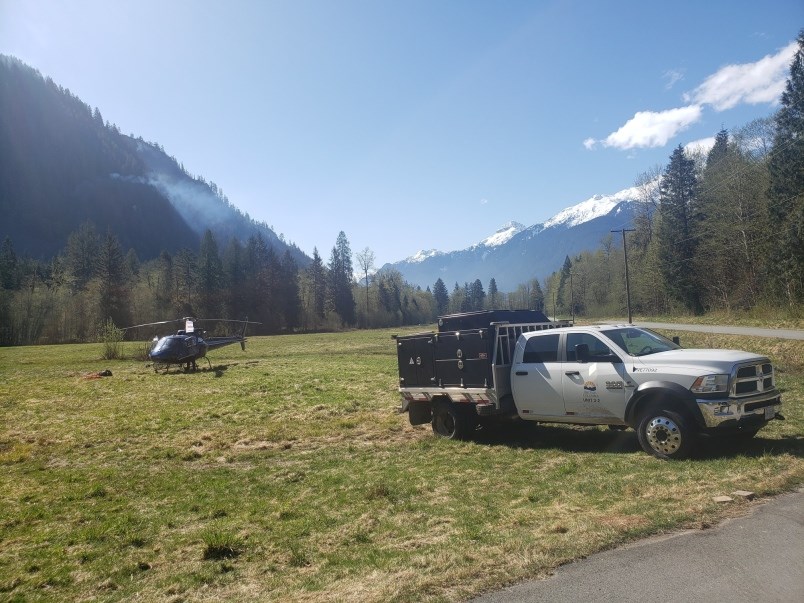Wildfire season has begun with an earlier than usual ban in place on all open burning except campfires, one major fire already on the books, and the Sunshine Coast Regional District (SCRD) touting time spent isolating at home as a perfect opportunity to FireSmart your property.
The Coastal Fire Centre has reported 19 wildfires since April 1, eight of them small enough, at less than 10m x 10m, to be considered spot fires. The majority have been person caused.
The 203-hectare Magee Road fire near Squamish, which forced evacuations and destroyed homes, is now considered under control and the BC Wildfire Service is hoping the rain forecast in the coming days will help dampen the last hot spots.
And, after inching up to moderate during the early April dry spell, fire danger ratings on the Sunshine Coast have dropped back to low.
The burning ban that came into force at noon April 16 was a direct response to the COVID pandemic, and BC Wildfire Service said it will also be making some changes to its operations in light of the pandemic.
“These open burning prohibitions will reduce demands on firefighting resources and help protect the health and safety of the public, as well as BC Wildfire Service staff,” the Wildfire Service said.
“They will also help reduce the impact of wildfire smoke on air quality and public health during the COVID-19 pandemic... It is vital BC Wildfire Service staff remain healthy to respond to wildfires throughout the 2020 season and ensure the BC Wildfire Service's response capability is not affected.”
Provincial fire information officer Hannah Swift told Coast Reporter that seasonal hiring for wildfire crews has gone ahead as usual, and the Wildfire Service will have the normal complement working out of the Sechelt base – two six-person initial attack crews – but the pandemic may mean changes in how the crews are trained.
“The BC Wildfire Service has assessed these required programs including annual New Recruit Boot Camps, crew leader camp and standard fitness testing and is implementing alternate ways to deliver this training where possible,” Swift said in an email.
“However, some training programs may have to be delivered in person. In those cases, extra precautions will be taken to reduce the risk of COVID-19 exposure such as reducing group sizes.”
Swift said the Wildfire Service will be postponing face-to-face meetings in favour of conference calls or video, limiting non-urgent travel, and only engaging in field work that’s not directly related to firefighting if there’s a low risk of COVID-19 exposure.
The SCRD, meanwhile, is encouraging people who are spending some extra time at home during the pandemic to consider using that time to start making their properties FireSmart.
“Many people are spending much more time at home, and much of that time is being spent working around the house and yard,” the regional district said in a release April 23. “These combined factors make this a fitting time for residents to consider applying FireSmart principles to their homes and property.”
– With files from Squamish Chief



